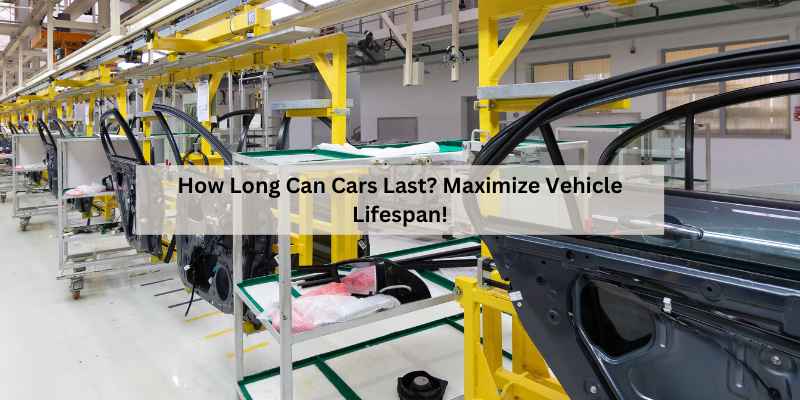How Long Can Cars Last? Maximize Vehicle Lifespan!
Cars can last between 12 to 15 years or up to 200,000 miles with proper maintenance. Factors like make, model, and driving habits significantly impact longevity.
The lifespan of a car varies widely based on several factors. Quality of materials, frequency of maintenance, and driving conditions play crucial roles. Some vehicles are designed to endure longer, while others may experience wear and tear more quickly. Regular servicing, timely repairs, and mindful driving can extend a car’s life.
Owners often wonder how to maximize their vehicle’s lifespan. Understanding the average longevity helps in making informed decisions about maintenance and replacements. Investing in a reliable car model and adhering to a strict maintenance schedule can make a significant difference in overall durability.
The Lifespan Of Modern Vehicles
The lifespan of modern vehicles varies greatly. Many cars last over 200,000 miles with good care. Factors influencing longevity include maintenance, driving habits, and climate. Regular oil changes and tire rotations are essential.
Driving gently can also help extend a vehicle’s life. Extreme weather can wear down parts faster. Choosing the right fuel and following the manufacturer’s guidelines are crucial.
| Vehicle Type | Average Mileage Expectation |
|---|---|
| Compact Cars | 150,000 – 200,000 miles |
| SUVs | 200,000 – 250,000 miles |
| Trucks | 200,000 – 300,000 miles |
Maintenance Essentials For Extended Car Life
Regular oil changes keep your engine running smoothly. Change the oil every 3,000 to 5,000 miles. This simple step helps prevent engine damage.
Timely belt replacements are crucial for car performance. Check your belts every 30,000 miles. Replace them if they show signs of wear.
Proper tire maintenance ensures safety and efficiency. Rotate your tires every 6,000 to 8,000 miles. Keep them inflated to the recommended pressure.
Impact Of Driving Habits On Vehicle Longevity
Aggressive driving can harm your car’s lifespan. Rapid acceleration and hard braking put stress on the engine and brakes. This behavior leads to quicker wear and tear on vital parts.
Gentle acceleration and braking promote better vehicle health. Smooth driving reduces fuel consumption and enhances safety. Regular maintenance becomes easier with fewer repairs needed.
Gentle driving can lead to lower emissions. This is good for the environment and your wallet. Less stress on the car means it can last much longer.
Technological Advancements And Durability
Modern cars use advanced materials for better durability. These materials are often lighter and stronger. Innovations in design help cars last longer. Engineers focus on both safety and performance.
Onboard diagnostics play a crucial role in vehicle longevity. They monitor the car’s health and alert drivers to issues. Regular checks can prevent major problems and save money. Drivers can keep their cars running smoothly with timely maintenance.
Understanding these advancements helps owners make informed decisions. A well-maintained car can last for many years. Investing in quality materials and technology pays off in the long run.
The Role Of Climate And Environment
Climate and environment play a big role in car lifespan. Corrosion happens faster in humid or salty areas. Cold climates can lead to rust and wear from road salt. Hot areas can cause parts to overheat and degrade. Protecting your car is essential.
Regular maintenance helps prevent damage. Use a car cover to shield from rain and snow. Waxing your car protects the paint from the sun. Regularly check for rust and fix it quickly. Keep your car in a garage or shaded area to reduce exposure.
| Climate Type | Effects on Cars | Protection Tips |
|---|---|---|
| Humid | Increased corrosion | Use rust-proofing treatments |
| Cold | Rust from road salt | Wash car regularly |
| Hot | Overheating parts | Park in shade and use sunshades |
When To Repair Vs. Replace
Deciding whether to repair or replace your car is important. A cost-benefit analysis helps make this choice. First, consider the repair costs. If repairs exceed the car’s value, replacement may be best.
Check the car’s age and mileage. Older cars often need more repairs. Frequent breakdowns also signal that it’s time for a change. Look for warning signs like strange noises or warning lights.
Lastly, think about your budget. If repairs strain your finances, a new car might be wiser. Always weigh the pros and cons before making a decision.
Extending The Life Of Your Car Through Upgrades
Upgrading your car with aftermarket parts can greatly extend its life. These parts often offer better quality than factory options. They can enhance performance and improve fuel efficiency. Many drivers choose these parts for their affordability and customization options.
Performance enhancements can make your car run smoother. Examples include better exhaust systems and high-performance tires. These upgrades can lead to improved handling and acceleration. Investing in these parts helps your car perform at its best.
| Aftermarket Parts | Benefits |
|---|---|
| Suspension Kits | Improved handling and comfort |
| Cold Air Intakes | Better engine performance |
| Performance Brakes | Shorter stopping distance |
Real-world Examples Of High-mileage Heroes
Many cars have reached over 300,000 miles with proper care. These vehicles show that maintenance is key. Owners of long-lasting cars often share their secrets. Regular oil changes and timely repairs are vital. Some owners recommend using high-quality parts for replacements.
Here are a few real-world examples:
| Car Model | Mileage Achieved | Owner Tips |
|---|---|---|
| Toyota Corolla | 400,000 miles | Follow service schedule strictly. |
| Honda Civic | 350,000 miles | Use synthetic oil for better performance. |
| Subaru Outback | 320,000 miles | Check fluids regularly and flush them. |
Many drivers agree that a clean engine lasts longer. Keeping the interior and exterior well-maintained also helps. Investing in quality tires can improve safety and longevity. A few simple habits can lead to impressive mileage.
Frequently Asked Questions
How Long Do Cars Typically Last?
Most cars can last between 12 to 15 years. This duration depends on maintenance and driving conditions. Regular servicing and timely repairs significantly extend a vehicle’s lifespan. Additionally, driving habits play a crucial role in longevity.
What Affects A Car’s Lifespan?
Several factors affect a car’s lifespan, including maintenance, driving conditions, and usage. Regular oil changes and timely repairs are vital. Harsh weather conditions can accelerate wear and tear. Moreover, how often you drive and the type of driving (highway vs.
city) also matter.
Can Regular Maintenance Increase Car Longevity?
Yes, regular maintenance can significantly increase a car’s longevity. Routine check-ups and timely oil changes help prevent major issues. Keeping tires inflated and brakes functioning properly also contributes. A well-maintained vehicle often lasts longer and performs better over time.
Do Some Car Brands Last Longer Than Others?
Yes, some car brands are known for durability. Brands like Toyota and Honda often receive high marks for longevity. Their reputation stems from reliable engineering and quality materials. Researching brand reliability can help in making informed purchasing decisions.
Conclusion
Cars can last for many years with proper care. Regular maintenance plays a crucial role in extending their lifespan. Factors like driving habits and climate also affect durability. Investing in quality parts and timely services can make a significant difference.
Ultimately, a well-maintained car can serve you reliably for over a decade.






